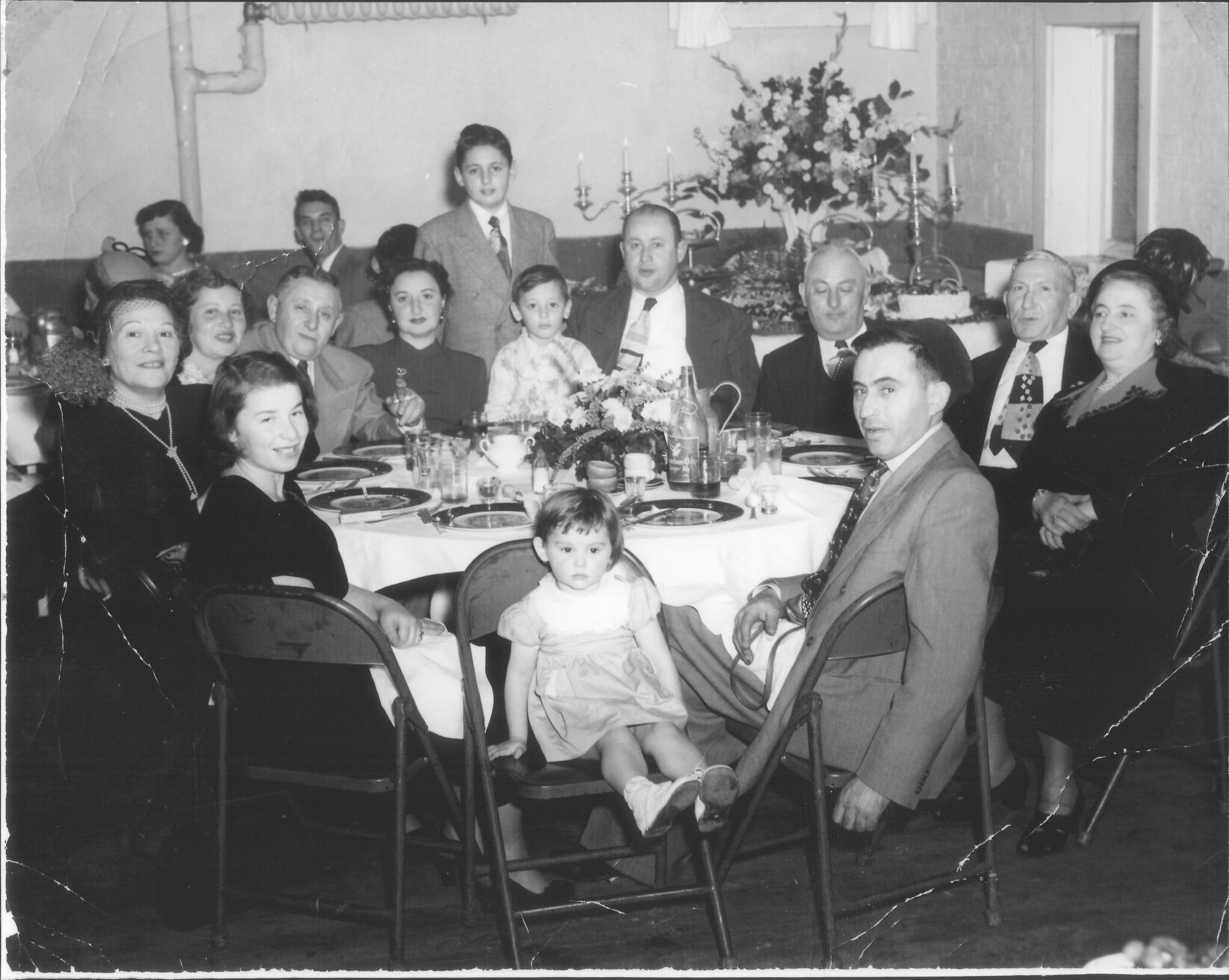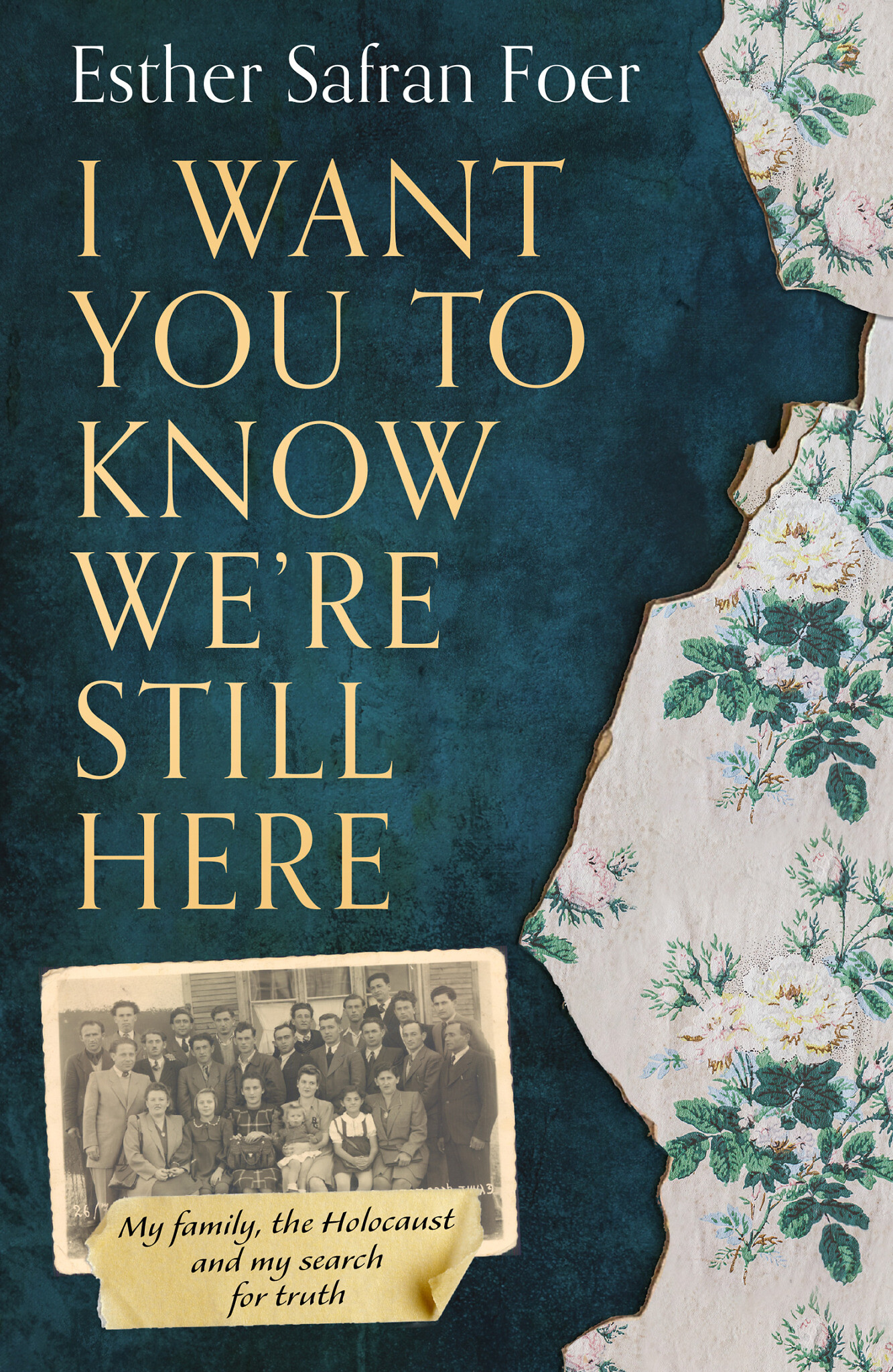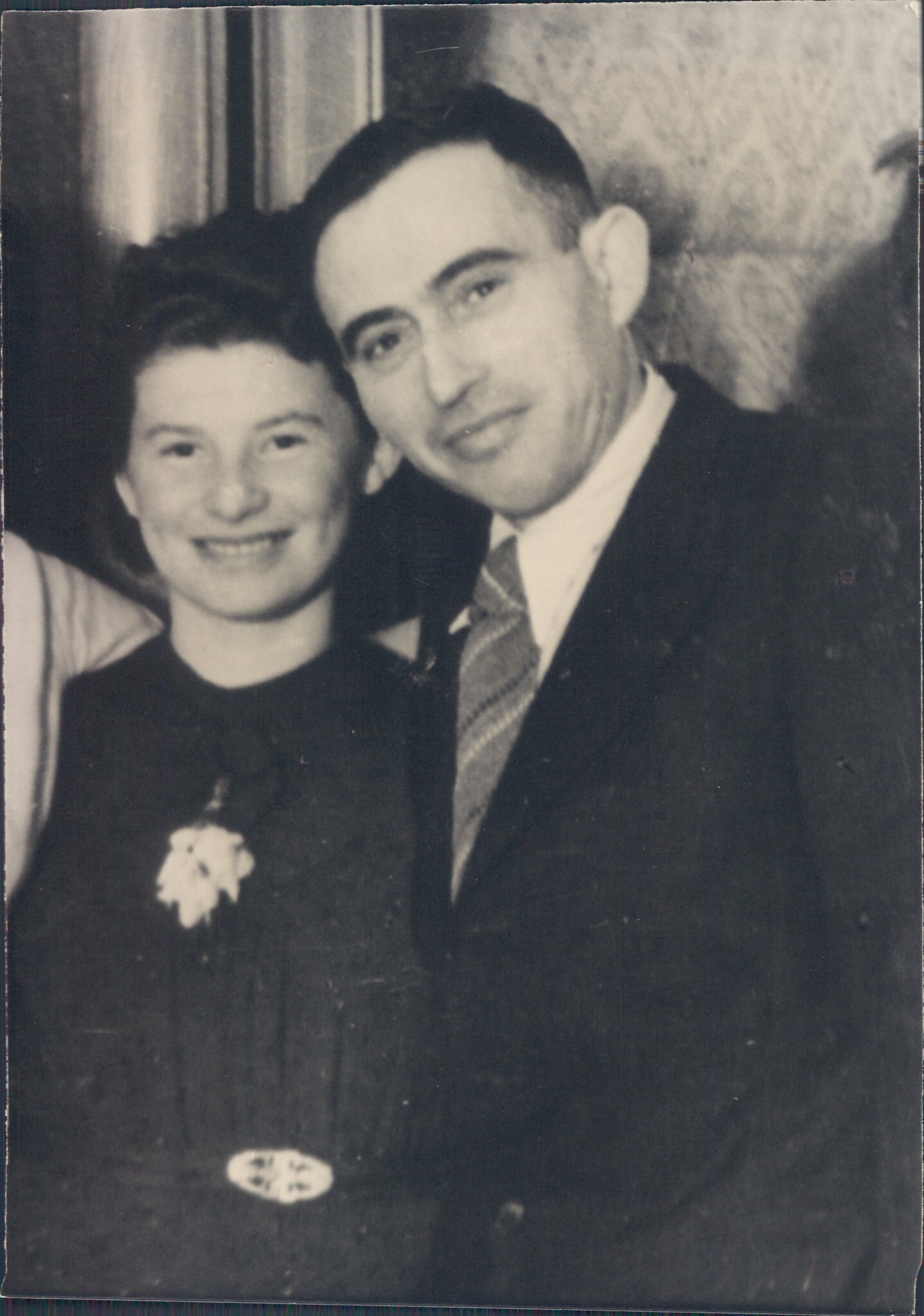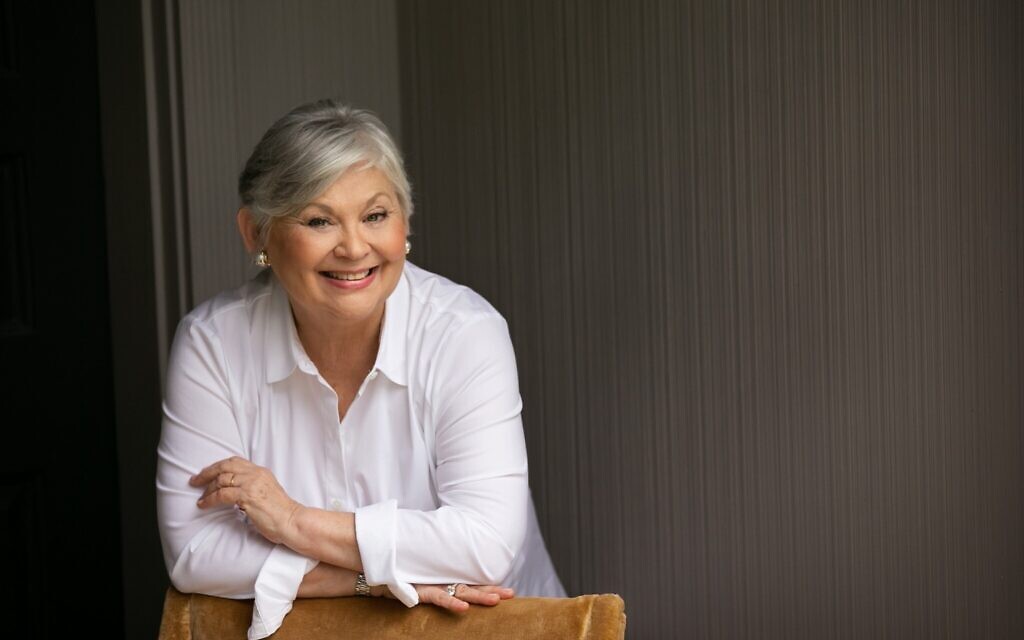‘I can’t change the past, but I can keep their names alive’
Mathilde Frot speaks to author Esther Safran Foer about discovering her Holocaust survivor father had another family before the war
When Esther Safran Foer’s home was broken into a few years ago, her computers and jewellery were taken, her family were left “hysterical” and as police swooped on the property, the incident grew into a “frightening kind of thing” – but Esther herself remained remarkably calm.
For while she had suffered the loss of material possessions, Esther recognised the real thing of value – stories about her parents, who had experienced and survived the Holocaust – could never be taken away from her.
“In the midst of that, I thought ‘I’ve got to write their stories. That’s what I really need to pass on, not things’,” says Esther, now a grandmother-of-six and author of a new post-Holocaust memoir, I Want You To Know We’re Still Here.
Get The Jewish News Daily Edition by email and never miss our top stories Free Sign Up
In her debut book, the author describes her near-obsessive pursuit to piece together fragments of information about her late parents Ethel Bronstein and Louis Safran, the only members of their families to survive the Shoah.
Esther, who lives in Washington DC, is something of a hoarder, as she describes in the book, and she displays on her mantle an assortment of glass jars, each preserving a memory: rubble from the Warsaw Ghetto, soil from her mother’s shtetl.
To add to her collection, she carries Ziploc bags with her, a habit depicted in her son Jonathan’s best-selling novel Everything is Illuminated, a best-selling fictionalised account of the Safran Foer family history, which was adapted into a 2005 film starring Elijah Wood.
“Sometimes I feel so silly as people watch me and I’m digging into the dirt and putting things into a little Ziploc bag, but I don’t care. It’s what I’m taking back with me,” she says.

Esther, who spent nearly the first three years of her life in a displaced persons’ camp in Germany before arriving in the US in 1949, grew up surrounded by unsaid traumas.
Her mother, who spent the war on the run, fled as far as Uzbekistan, working on farms and in factories.
Her father, an enigmatic figure whose life before the US was shrouded in mystery, had committed suicide when Esther was just eight.
But she subsequently discovered that he had a wife and daughter back in the Ukraine, who were murdered by the Nazis.

The discovery, which came in her 40s after she confronted her mother for answers, reignited a lifelong quest to understand her father’s early life.
“I went home. I looked on all the databases. I had a sister, whose name had never been known and didn’t exist. At a minimum I could put Baby Safran into the Yad Vashem database,” she says.
Esther’s indefatigable investigations involved over the years spending hours poring over Holocaust databases, recruiting researchers in the Ukraine and even hiring a former FBI agent to analyse family photographs.
They finally found a lead in Trachenbord, Ukraine, her late father’s hometown, where she journeyed back to in 2009 with her journalist son Frank, in an effort to track down the people who hid her father during the war.
What she found during her travels was life-affirming. “I was so lucky that I took that trip in 2009, because so many of the people I talked to who were able to give me information are now gone,” she adds.
Writing the book was a therapeutic process, she says. “It was an important process to deal with things that I’d never dealt with.”

“Probably like every other Jew, I’ve read so many Holocaust memoirs, and this was going to be another Holocaust memoir,” she says. “But it came out of the writing that this was not just a story about the past. It’s about the future.
“There’s nothing I can do to change the past. I can cry about it. I can be enormously sad that I never had grandparents or aunts or uncles or first cousins. What I can do in this book is put their names down and at least their descendants will know that they lived,” she adds.
Esther’s mother died two months before her writing deadline.
“She was almost 99-years-old. I didn’t know what was going to happen. But in the time between her death in December, and the time I finished the book in February, I was able to open up about things that I couldn’t while she was alive.
But, she adds: “I think she’d be happy [with the book]. She’d be proud.”
I Want You To Know We’re Still Here by Esther Safran Foer is published by Harper Collins, priced £20 (hardback) and is available now in hardback, ebook and audiobook.

Thank you for helping to make Jewish News the leading source of news and opinion for the UK Jewish community. Today we're asking for your invaluable help to continue putting our community first in everything we do.
For as little as £5 a month you can help sustain the vital work we do in celebrating and standing up for Jewish life in Britain.
Jewish News holds our community together and keeps us connected. Like a synagogue, it’s where people turn to feel part of something bigger. It also proudly shows the rest of Britain the vibrancy and rich culture of modern Jewish life.
You can make a quick and easy one-off or monthly contribution of £5, £10, £20 or any other sum you’re comfortable with.
100% of your donation will help us continue celebrating our community, in all its dynamic diversity...
Engaging
Being a community platform means so much more than producing a newspaper and website. One of our proudest roles is media partnering with our invaluable charities to amplify the outstanding work they do to help us all.
Celebrating
There’s no shortage of oys in the world but Jewish News takes every opportunity to celebrate the joys too, through projects like Night of Heroes, 40 Under 40 and other compelling countdowns that make the community kvell with pride.
Pioneering
In the first collaboration between media outlets from different faiths, Jewish News worked with British Muslim TV and Church Times to produce a list of young activists leading the way on interfaith understanding.
Campaigning
Royal Mail issued a stamp honouring Holocaust hero Sir Nicholas Winton after a Jewish News campaign attracted more than 100,000 backers. Jewish Newsalso produces special editions of the paper highlighting pressing issues including mental health and Holocaust remembrance.
Easy access
In an age when news is readily accessible, Jewish News provides high-quality content free online and offline, removing any financial barriers to connecting people.
Voice of our community to wider society
The Jewish News team regularly appears on TV, radio and on the pages of the national press to comment on stories about the Jewish community. Easy access to the paper on the streets of London also means Jewish News provides an invaluable window into the community for the country at large.
We hope you agree all this is worth preserving.
-
By Brigit Grant
-
By Laurent Vaughan - Senior Associate (Bishop & Sewell Solicitors)
-
By Laurent Vaughan - Senior Associate (Bishop & Sewell Solicitors)
-
By Laurent Vaughan - Senior Associate (Bishop & Sewell Solicitors)
-
By Laurent Vaughan - Senior Associate (Bishop & Sewell Solicitors)






















